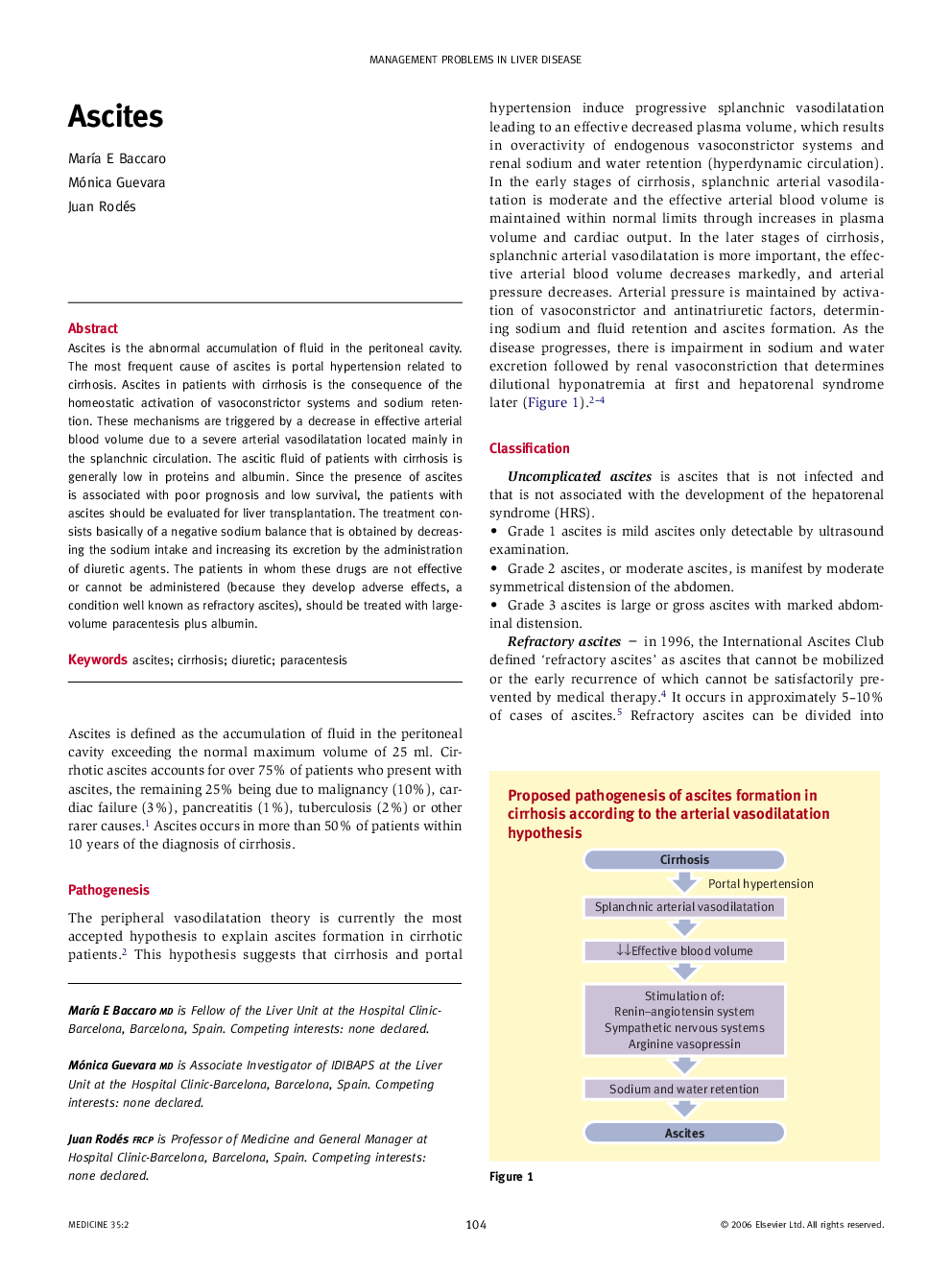| Article ID | Journal | Published Year | Pages | File Type |
|---|---|---|---|---|
| 3805795 | Medicine | 2007 | 4 Pages |
Ascites is the abnormal accumulation of fluid in the peritoneal cavity. The most frequent cause of ascites is portal hypertension related to cirrhosis. Ascites in patients with cirrhosis is the consequence of the homeostatic activation of vasoconstrictor systems and sodium retention. These mechanisms are triggered by a decrease in effective arterial blood volume due to a severe arterial vasodilatation located mainly in the splanchnic circulation. The ascitic fluid of patients with cirrhosis is generally low in proteins and albumin. Since the presence of ascites is associated with poor prognosis and low survival, the patients with ascites should be evaluated for liver transplantation. The treatment consists basically of a negative sodium balance that is obtained by decreasing the sodium intake and increasing its excretion by the administration of diuretic agents. The patients in whom these drugs are not effective or cannot be administered (because they develop adverse effects, a condition well known as refractory ascites), should be treated with large-volume paracentesis plus albumin.
